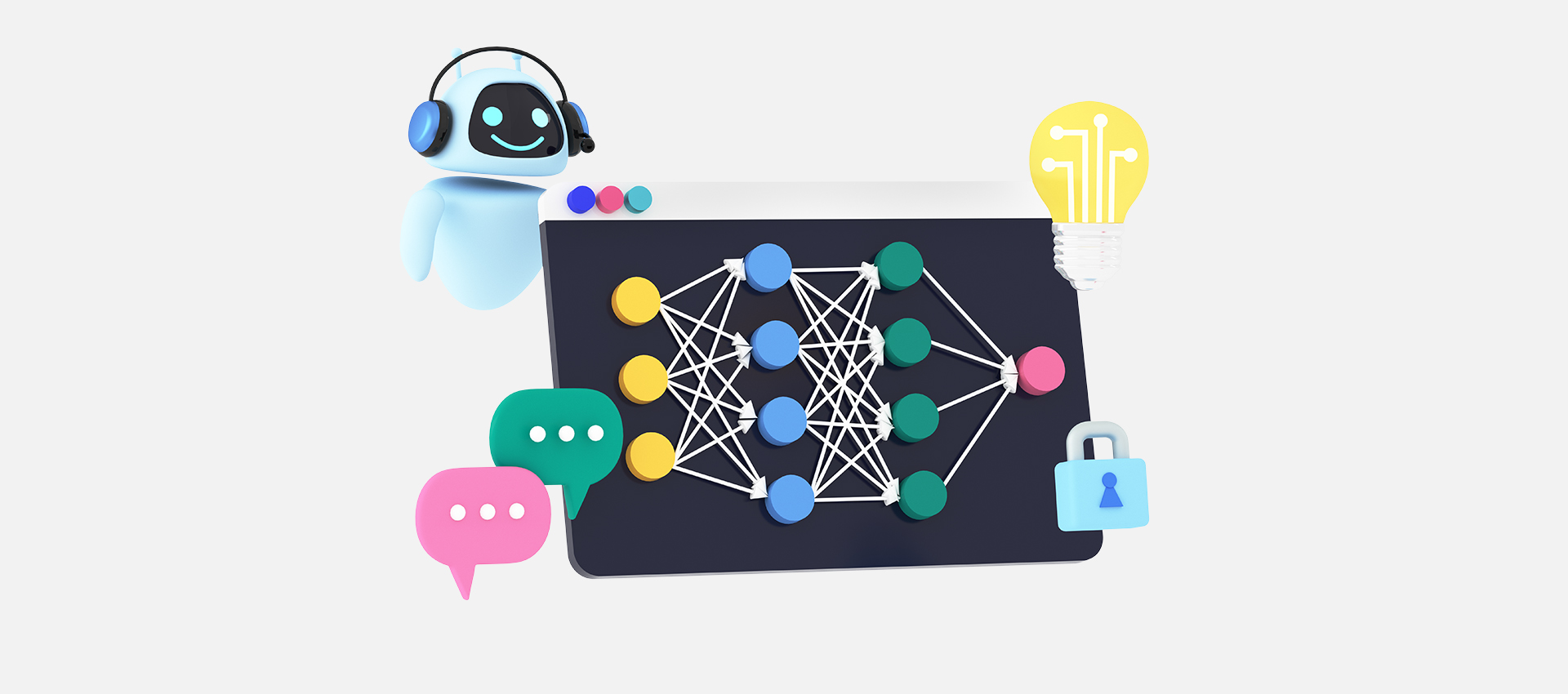Automating customer service: The role of chatbots and AI in enhancing e-commerce support
As the world goes deeper into the digital age, it's becoming crystal clear that future commerce will be mainly conducted online. E-commerce is swiftly transforming the way businesses operate, offering convenience and countless choices to consumers across the globe. However, as this sector continues to grow and evolve, so does the need for effective and efficient online customer service.
Learn about the role and significance of these technologies in ecommerce. Is it a winning strategy for boosting customer satisfaction and boost sales?
Table of Contents
- The rise of chatbots and AI in ecommerce support
- The importance of customer service in e-commerce
- The impact of chatbots and AI on e-commerce customer service
- Best practices in implementing chatbots and AI
- Overcoming challenges and ethical considerations
- The future of e-commerce customer service
- Are AI chatbots good for your ecommerce business?
The rise of chatbots and AI in ecommerce support
Customer support has always been an essential component of any successful business. But with the birth of e-commerce, its importance has been magnified. Customers shopping online expect quick responses, instant gratification, and personalization, creating a demand for a level of customer service that is challenging to provide through traditional methods.
This is when chatbots and artificial intelligence (AI) come in. These innovative technologies have emerged as powerful tools in the automation of customer service, providing solutions for online retailers that are not only efficient but also effective in enhancing the overall customer experience.
Ecommerce chatbots and AI - what are they?
A chatbot is a computer program designed to simulate human-like conversations. It interacts with users through a chat interface, which can be found on websites, mobile applications, or even popular social media platforms like Facebook Messenger. Chatbots can be as simple as providing pre-set responses to specific prompts or as complex as using AI and natural language processing (NLP) to understand and respond to various questions.
Artificial Intelligence (AI), on the other hand, is a broader concept that refers to machines or software that can mimic human intelligence. It encompasses a range of technologies, including but not limited to machine learning (ML), deep learning, and natural language processing (NLP). In the context of customer service, AI powers chatbots and lets them learn from customer interactions and improve their performance over time.
The importance of customer service in e-commerce

In the highly competitive landscape of e-commerce, customer service is more than just a value-add; it's a vital differentiator that can make or break a business. Unlike brick-and-mortar shopping, where consumers can physically interact with products and sales representatives, online shoppers rely heavily on customer support to guide their purchasing decisions.
They expect fast responses to queries, personalized recommendations based on their preferences, and immediate resolution of any issues or concerns. Moreover, the impersonal nature of online shopping makes effective customer service crucial in building trust and loyalty.
However, delivering this level of service can be challenging, particularly for businesses operating on a large scale or across different time zones. This is where ecommerce chatbots and AI come in.
The impact of chatbots and AI on e-commerce customer service
The integration of chatbots and AI into customer service has the potential to transform the e-commerce landscape in several ways. Let's consider some of them in greater detail.
24/7 availability
One of the most significant advantages of ecommerce chatbots is their ability to offer round-the-clock support and reply to customer inquiries. Unlike their human counterparts, chatbots don't require breaks, don't take days off, and can work efficiently regardless of the hour or day of the week. They're there to respond to customer queries or concerns, whether it's 3 p.m. or 3 a.m.
This 24/7 availability is especially crucial in e-commerce, where consumers may shop from different parts of the world across various time zones.
Efficient query resolution
Chatbots, particularly those powered by AI, can handle multiple queries simultaneously, significantly reducing response times. They can instantly provide answers to common questions, troubleshoot issues, or guide customers through standard processes like tracking an order or processing a return. By handling these routine queries, ecommerce chatbots free up human customer service representatives to focus on more complex or sensitive issues. This improves efficiency and leads to a more effective allocation of resources.
Personalized customer experience
One of the key strengths of AI is its ability to analyze and learn from data. In the context of customer service, this means that AI-powered chatbots can deliver a highly personalized experience to customers. They can analyze previous interactions to understand a customer's preferences, provide customized product recommendations, or even anticipate their needs. This level of personalization can significantly enhance the customer's shopping experience, fostering loyalty and increasing the likelihood of repeat purchases.
Cost efficiency
Implementing chatbots and AI can lead to significant cost savings. They can handle a high volume of queries without additional resources, reducing the need for a large customer service team. Furthermore, as AI technology advances, AI chatbots become increasingly capable, potentially leading to more cost savings.
Data collection and analysis
Chatbots and AI offer a valuable opportunity for businesses to gather and analyze customer data. By monitoring customer interactions via chatbot analytics, businesses can gain insights into customer behavior, preferences, and pain points. This data can then be used to improve products, optimize marketing strategies, and enhance the overall customer experience.
Best practices in implementing chatbots and AI

While implementing chatbots and AI can offer numerous benefits, it's crucial to do so thoughtfully to maximize these advantages. Here are a few best practices to consider.
Focus on the customer experience
The ultimate goal of any customer service tool should be to enhance the customer experience. Ensure that your chatbot is easy to use, responsive, and able to effectively resolve customer queries.
Maintain a human touch
While chatbots are highly efficient, they can't fully replicate the warmth and empathy of human interaction. Ensure to maintain a balance between automated and human customer service, and always offer customers the option to speak with a human customer service agent. This is a win-win strategy for providing the best customer experience in your online store.
Continuously improve
Use the data collected by your ecommerce chatbot to continuously improve its performance. Regularly update your chatbot's knowledge base and train it on new queries or issues.
Be transparent
Always make it clear to customers when they are interacting with a chatbot. Transparency builds trust and sets appropriate expectations.
Overcoming challenges and ethical considerations
Now that we know about the impact of chatbots and AI, as well as its best practices, it's time to dive into the challenges and ethical considerations of those technologies.
Because despite the numerous benefits, integrating chatbots and AI in customer service has challenges.
One of the most prominent is ensuring the technology comprehends the nuances of human language and provides appropriate responses. While AI has come a long way in understanding and processing natural language, it's not flawless. Misinterpretations can lead to incorrect responses, which can frustrate customers and potentially harm a company's reputation.
Moreover, while ecommerce chatbots can handle simple queries effectively, they may struggle with complex or subjective issues. For instance, handling complaints or resolving conflicts often requires a degree of empathy and tact that AI currently lacks. These situations are better managed by people and not machines.
Another significant challenge is data privacy and security. With chatbots collecting vast amounts of customer data, it's essential to have robust measures in place to protect this information. Businesses must comply with data protection regulations and ensure they are transparent with customers about their data use.
The future of e-commerce customer service

As AI technology continues to evolve and improve, the role of chatbots in e-commerce customer service is expected to expand even further. We will probably see more advanced natural language processing capabilities, enabling chatbots to more accurately understand and respond to complex queries. Additionally, advancements in machine learning could allow chatbots to predict customer needs and provide proactive support, further enhancing the customer experience.
Moreover, the integration of AI with other emerging technologies could revolutionize e-commerce customer service. For example, combining AI with virtual reality (VR) or augmented reality (AR) could create highly immersive and interactive customer service experiences. Similarly, using AI with the Internet of Things (IoT) could facilitate real-time support for connected devices, opening up new possibilities for ecommerce customer service.
Are AI chatbots good for your ecommerce business?
In the fast-paced, ever-evolving world of ecommerce, delivering excellent customer service is crucial. Customers expect businesses to be responsive and customer-friendly. And chatbots and AI offer ecommerce businesses powerful tools to meet and exceed customer expectations, providing efficient, personalized, and proactive support. While there are challenges to overcome and ethical considerations to navigate, the potential of these technologies to enhance e-commerce customer service is immense.
As we move towards an increasingly digital future, it's clear that chatbots and AI will play a pivotal role in shaping the customer service landscape. By embracing these technologies and leveraging them responsibly and effectively, e-commerce businesses can improve their customer service and gain a competitive edge in the digital marketplace.
In a nutshell, automating customer service through chatbots and AI is not just a passing trend but a significant shift in how businesses interact with their customers. As these technologies continue to evolve and mature, they will undoubtedly create new paradigms in customer service, redefining what it means to deliver truly exceptional customer experiences in the e-commerce industry.
Articles you may also like

Let’s be honest. We all love comparing stuff. If you’re buying something and have a few options, you just have to compare it,...

In 2003, PackshotCreator team pioneered the first automated packshot studio. It was a time when the need for images and visua...

The term Window shopping has been around for decades. Some still consider strolling down the mall’s alleys and simply admirin...







